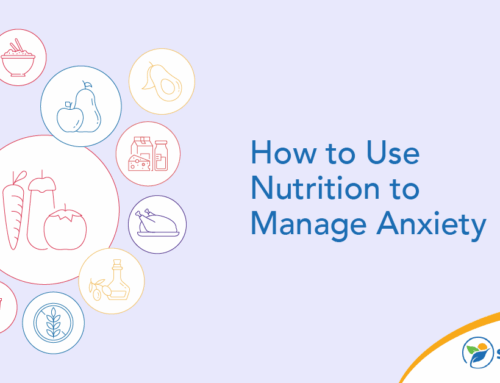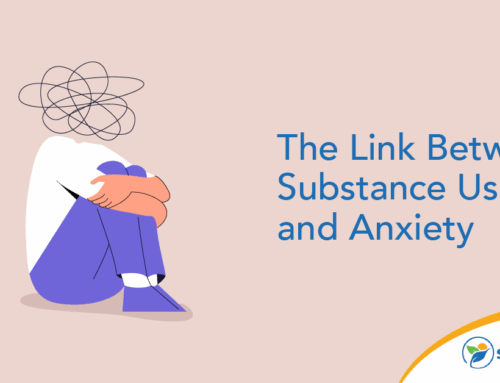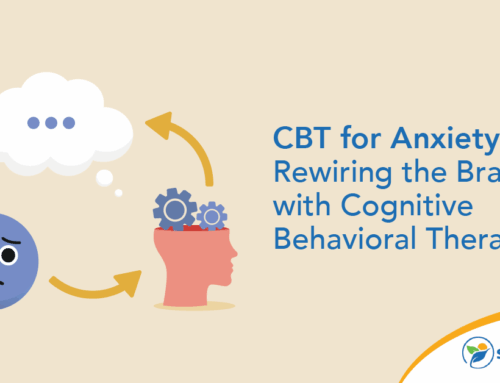Everyone experiences loss at some point in their lives, whether it’s the death of a loved one or the end of a significant relationship. It’s normal to be upset and grieve, but some individuals may have difficulty coping and experience intense anxiety or abandonment fear that can affect future relationships. They may struggle to communicate or connect with others due to feeling insecure or undeserving of love. Coping with abandonment issues can be painful, but it can help you form healthier relationships. Explore abandonment issues signs and coping strategies so you can learn how to heal and move forward.
Defining Abandonment Issues
The term “abandonment issues” isn’t a distinct mental health condition but a type of anxiety people can experience due to fear of being deserted. They may feel insecure in their relationships and seek frequent reassurance from their partner. This reaction is typically referred to as anxious attachment.
A person can develop an anxious attachment style when their emotional or physical needs aren’t met or they experience a traumatic event in childhood. They may have had an unstable living situation, inadequate food or clothing or poor emotional support, causing self-esteem issues or a fear of abandonment as they become adults. Research by the Substance Abuse and Mental Health Services Administration reports about 67% of children experience at least one traumatic event before age 16.
Some people may develop anxiety or a personality disorder, such as borderline personality disorder, due to these experiences. These conditions can present additional symptoms, making it even harder to cope.
Abandonment Issues Signs
Abandonment issues can affect your ability to form healthy relationships. However, recognizing abandonment fears can help you understand how they impact your life, leading to healthier coping mechanisms. Common signs of abandonment issues include:
- Difficulty communicating with others
- Constantly seeking attention or reassurance that a partner won’t leave
- Having trouble fully trusting your partner
- Jumping from one relationship to the next
- Struggling to show intimacy
- Intentionally sabotaging personal relationships
- Staying in unhealthy or abusive relationships
- Engaging in abusive, manipulative or coercive behavior
- Experiencing frequent anxiety symptoms
In children, abandonment issues may manifest as separation anxiety, causing a fear of being separated from a caregiver and going to school or daycare.
Relationship Impact of Abandonment Issues
Because abandonment issues often stem from losing a loved one or being in an unstable relationship, they can make it difficult to communicate effectively or show intimacy. Some people may constantly worry about their partner leaving them and engage in attention-seeking behaviors or falsely accuse their partner of cheating or attempting to leave.
These actions may create unnecessary conflict or drive the partner away, causing the person with abandonment issues to feel unlovable or believe everyone leaves them without explanation, even though their behavior is what upended the relationship. They may then bounce from one relationship to the next due to fear of developing feelings or being abandoned again.
Abandonment issues don’t only affect romantic relationships. As a teenager, a person with abandonment issues may cling to their friends and become upset if a buddy makes a new friend due to fear of being left behind. They may make their friend feel guilty about spending time with someone else, ultimately leading to the friendship’s demise. This loss may only further contribute to abandonment fears, creating a cycle of unhealthy behaviors and volatile relationships.
Coping With Fear of Abandonment
Having abandonment issues can affect daily life, especially without proper support or healthy coping skills. You may need to regularly manage emotions to maintain your relationships and overall well-being. Coping strategies you can practice at home include:
- Identifying and challenging anxious or self-critical thoughts as they arise
- Engaging in self-care activities, including exercising, getting enough sleep or journaling to reduce stressful or anxious feelings
- Building a strong support network with trusted friends and family members or others who share similar thoughts or experiences
- Focusing on confidence-building activities outside of relationships, including sports or creative hobbies like painting
If you’ve recognized abandonment issues signs in a loved one, offering support and validation is crucial to their recovery and well-being. However, it’s important not to criticize their fears, demand they change or give ultimatums, like threatening to leave if they don’t seek help. Instead, try to:
- Maintain a patient, empathetic demeanor
- Provide reassurance that you aren’t mad, disappointed or leaving them
- Focus on how their fears are affecting their life and happiness instead of yours
- Discuss coping strategies or treatment options you believe might help if they’re interested in receiving advice
Additionally, avoid using the term “abandonment issues.” It can have a negative connotation and come across as criticism, causing your loved one to become upset and defensive or believe something’s wrong with them. They may become less open to having a conversation or seeking help.
Seeking Help for Abandonment Fears
If abandonment issues are severely impacting your ability to function or maintain relationships, professional support may be necessary. Fear of abandonment is considered a symptom rather than a diagnosis, meaning mental health professionals try to determine whether an individual’s thoughts and behaviors align with the criteria for a specific mental health disorder. This diagnosis can help guide the best course of treatment.
Talk therapy is a primary treatment for abandonment issues. A therapist can help explore your experience with abandonment, potentially identifying causes for anxious or stressful feelings. Some therapists may consider certain therapy models to explore specific abandonment fears. Common therapy models include:
- Cognitive behavioral therapy. A type of structured, goal-oriented talk therapy that challenges inaccurate or negative thoughts to develop healthier responses to conflict
- Dialectical behavior therapy. A type of evidence-based psychotherapy that focuses on developing skills for managing emotions and relationships
- Emotionally focused therapy. A type of short-term therapy that explores emotional dynamics within couples to improve relationships
If you or someone you know is experiencing abandonment issues, don’t hesitate to seek help. Sunlight Recovery caters to a range of mental health disorders to help you access personalized treatment and build a more fulfilling life. Contact us today to see how our services can help foster healthy, meaningful relationships.







